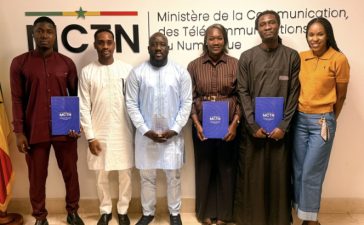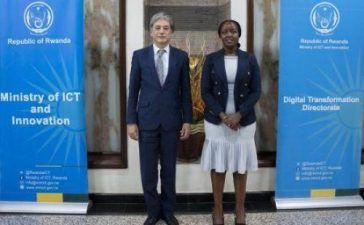Tech leaders, academics, policymakers, and entrepreneurs from across Africa and beyond convened in Lagos, Nigeria, for the 2024 Pan-African AI Conference to explore the opportunities and challenges presented by the rise of artificial intelligence (AI). Co-hosted by the United States, the event marked a pivotal moment in Africa’s technological future, with participants focused on creating a collaborative, inclusive, and human-centered approach to AI development.
In his opening remarks, Nigeria’s Minister for Communications, Innovation, and Digital Economy, Bosun Tijani, emphasized the importance of ensuring that the continent’s digital transformation is inclusive and equitable. “For us to truly harness artificial intelligence to our collective benefit, we must be deliberate and collaborative in our approach,” Tijani said, underscoring the need for a shared vision across Africa and its partners.
As part of the Nigerian government’s commitment to fostering innovation, Tijani announced a $61,000 Artificial Intelligence Fund aimed at supporting Nigeria’s brightest AI startups. This initiative is expected to drive the country’s AI ecosystem, building on Lagos’ reputation as the “Silicon Valley of Africa.” The city’s dynamic tech environment was evident throughout the conference, where delegates from over 30 African nations engaged with their counterparts from the U.S. to share insights and explore AI’s potential for economic and social development.
Representing the United States, Dr. Seth Center, Acting Special Envoy for Critical and Emerging Technology, outlined two significant challenges concerning AI’s future. “One is to create the kind of safe and secure governance framework that is going to enable, not hinder, innovation—one that can create confidence in citizens anywhere in the world to use AI embedded in their lives,” Center noted. He also highlighted the need for an enabling business environment to encourage private sector investments that would foster AI development in Nigeria and beyond.
The collaboration between Nigeria and the U.S. was seen as a critical step in addressing these challenges, with both countries recognizing AI’s vast potential to spur economic growth and improve quality of life across Africa. The conference served as a platform for key stakeholders to align their efforts, reinforcing the importance of cross-continental partnerships in advancing technological innovation.
As AI continues to play a transformative role in various sectors, the Pan-African AI Conference is expected to shape the continent’s approach to harnessing emerging technologies for sustainable growth, innovation, and societal advancement.







